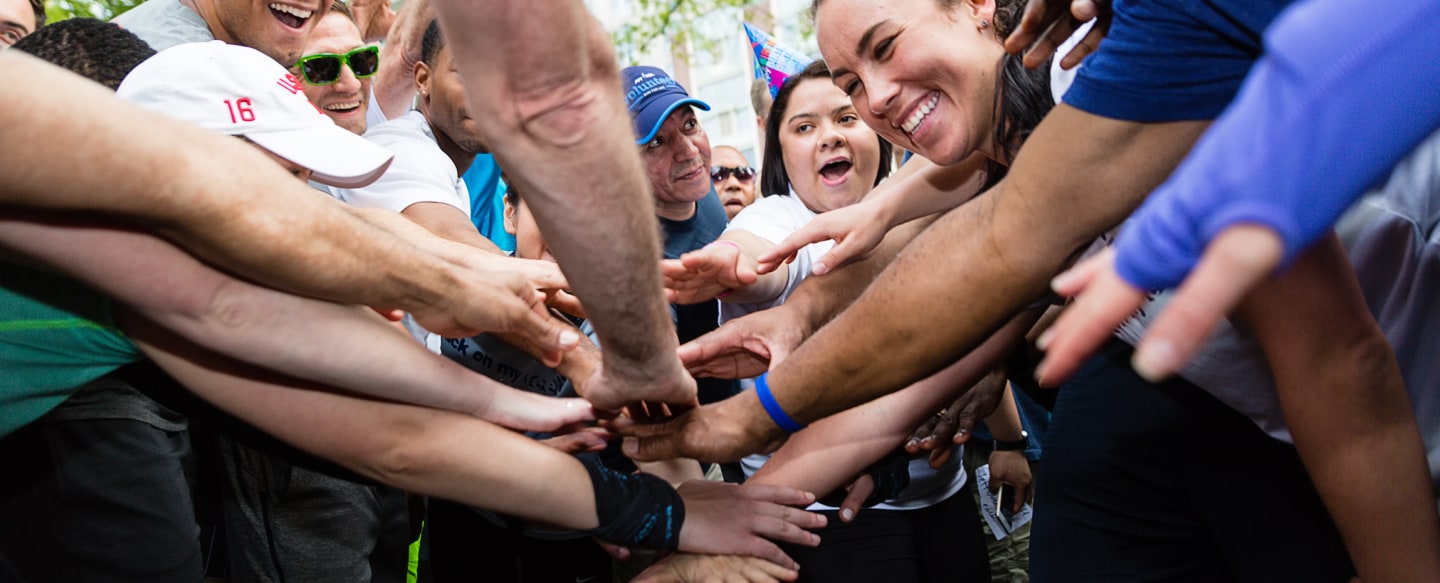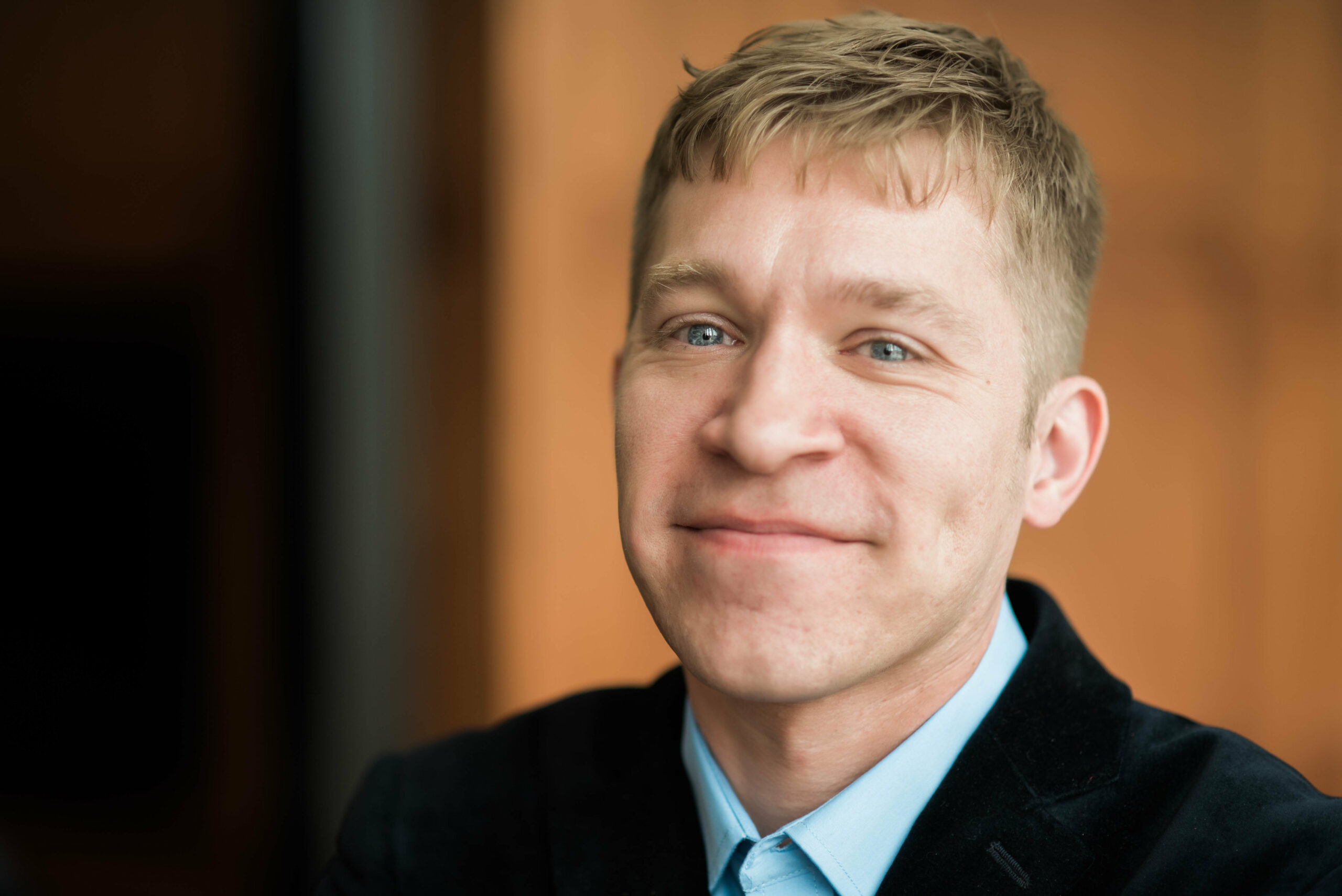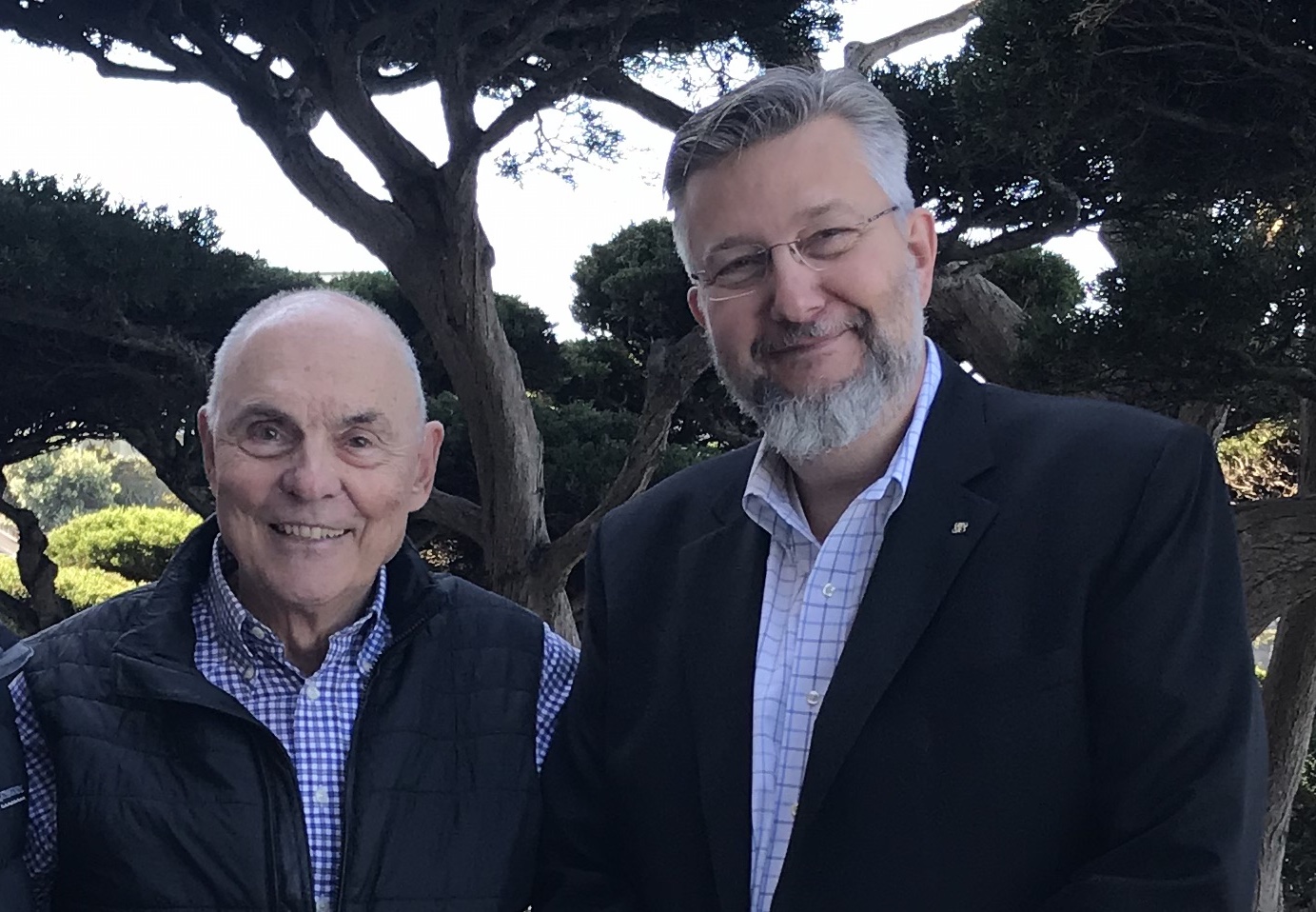Korok Ray is an expert on innovation, so naturally he’s found an innovative way to teach economics. Ray wrote a mystery novel, Fuzzy Financials, to help his students understand financial issues. “Believe it or not, a novel is similar to economic research,” says Ray, an associate professor of accounting and the director of the Mays Innovation Research Center (MIRC) at Texas A&M University. “In economics, we try to build theoretical models to explain reality. These models are stories that have characters, such as consumers, firms, and governments. They also have a plot and they even have a surprise ending.” In Fuzzy Financials, an executive needs to learn economics to prove his innocence when he is framed for murder. “Many of my students told me it made economics and accounting come to life in a way that a standard textbook never could,” he says.
Ray’s passion for economics is clear both in the classroom and in his work for MIRC. Funded in part by gifts from the Mays Family Foundation and the Charles Koch Foundation, MIRC examines the nature of innovation, from how it advances human potential to the conditions that allow innovation to flourish. We asked Ray about everything from his intellectual heroes to what he learned at his first job (hint: money isn’t everything).
Living a double life
I was raised in Andover, Massachusetts, a small suburb northeast of Boston. I had a fairly typical suburban childhood for an Indian-American kid. I was good at math and spent most of my time with books and the internet. My family expected me to become a doctor. Half of my friends were from school, and half were the children of my parents’ friends from India. I sort of had a double life, with Indian-only friends over the weekends and friends from school during the week.
A major difference with mom and dad
I grew up with asthma, so I did not live an athletic lifestyle. I learned to program at an early age and spent countless hours on early Macintosh computers. My parents switched me to private school after seventh grade, and I attended Phillips Academy in Andover. It was equal to the education of a strong liberal arts college in many ways. But after 18 years in Andover, I was ready to experience the wider world. I fell in love with the University of Chicago, and I toyed with majoring in history because I love understanding the past. My parents did not feel like it was a good return on their investment, however, so they pushed me into a more quantitative field. Fortunately, I like math, and the undergraduate curriculum in mathematics at the University of Chicago was first-rate.
An early lesson about money
My first paid job was as a typist the summer after my freshman year in college. I transcribed audio files for a company in Harvard Square. Even by 1996 standards, $15 an hour was a high wage. I took the job mostly because I typed fast and could earn more than my friends. But I found the work to be somewhat tedious, and I damaged my hands by typing all day. The lesson I learned is that it’s important to pick jobs that I enjoy and not simply do things for money. If I had that summer back again, I would take a job that was more social and fun, even if it paid less.
Falling in love (with economics)
I attended several graduate economics classes as an undergraduate math major at the University of Chicago. Robert Lucas and Gary Becker were Nobel laureates, masterful communicators, and almost hypnotic storytellers. They reduced modern life into a simple framework, which came from rational choice theory. I knew after a few lectures that I wanted to be an economist. How else could you explain all manner of social, political, and economic life with a single coherent body of theory? I loved it.
City of the big concepts
From the 1970s to 1990s, Chicago was a brash, irreverent, and bold place. Intellectuals were fighting against the reigning orthodoxy from the coasts, and the David versus Goliath feeling was so inspiring to me. I read the works of Milton Friedman, Jacob Viner, Gary Becker, and Robert Lucas, and they became my heroes. In my time there, I absorbed the culture of intense inquiry, fresh ideas, big thinking, and clear communication.
An interest in innovating
I’m currently reading The Idea Factory: Bell Labs and the Great Age of American Innovation, about Bell Labs, the research arm of AT&T. One of my longstanding interests is to understand the best environments for innovation. The current model is the venture-backed start-up from Silicon Valley, which includes a small team of people who face strong profit incentives through a potential initial public offering or acquisition. Bell Labs was an alternative model, which gathered together a wide mix of interdisciplinary, intelligent people, put them into a building, and encouraged them to innovate. The amount of innovation out of Bell Labs is outstanding, which made me curious about the best possible organizational structure for innovation. I would like to explore this within MIRC.
Favorite quote
George Bernard Shaw said, “The reasonable man adapts himself to the world: the unreasonable one persists in trying to adapt the world to himself. Therefore all progress depends on the unreasonable man.” It reminds me that progress often comes from strong conviction, taking risks, and believing in yourself when no one else will. In our current education system, we tend to teach adaptation, encouraging students to adapt themselves to the world as it exists today. True progress, however, comes from moving the world in a new direction.











